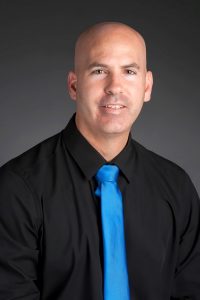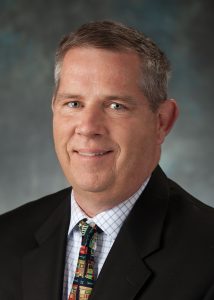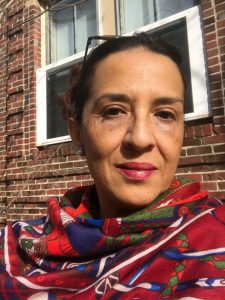Wesleyan Welcomes 17 Visiting Faculty

This fall, Wesleyan welcomes 17 visiting faculty members to campus. They are:

Christopher Bell, David Scott Williams Visiting Assistant Professor of Psychology, received his BA in English literatures and cultures from Brown University and his MA and PhD in psychology from the University of West Georgia. His research explores the processes and outcomes of psychotherapy; his dissertation, Psychotherapeutic Subjectivities, examined the subjective experiences of individuals in psychotherapy, analyzing these experiences in terms of different psychotherapeutic techniques. He has published on projection and memories of projection as well as Lacanian psychoanalysis, and his projects advocate a contextual approach to psychotherapy research. This fall, Bell is teaching a first-year seminar on Psychoanalysis Then and Now, and Cultural Psychology.
Alessandra Buccella, visiting assistant professor of philosophy, received her PhD in philosophy from the University of Pittsburgh. Her work focuses on the philosophy of mind and perception, at the intersection with psychology and cognitive science. She did her undergraduate studies in Milan, Italy, and has a Master’s degree in analytic philosophy from the University of Barcelona, Spain. Buccella’s broader philosophical interests encompass 20th-century phenomenology, philosophy of science, and feminist philosophy. Recently, she has been working on ways to combine philosophical theories of perception and objectivity with insights coming from the feminist tradition, in particular regarding the role of the body in shaping our experience of the world. This fall semester, she’s teaching Philosophy of Psychology and a first-year seminar titled Bodies and Experiences.
Carolina Diaz, visiting assistant professor of Spanish, works at the intersection of continental philosophy and Latin American culture, in particular contemporary Chilean art and politics from Pinochet’s dictatorship forward. Her current book project, “Ecologies from Below: The Elements and Chile’s Ecological Imagination,” is a feminist, environmental exploration of art, films, and poetry that proposes a different modality of being in the world with humans and their more-than-human others. Diaz recasts the elements of water, earth, fire, and air as material agents, as fields of meaning from which to read what she conceives as a historical continuum of unacknowledged violence against marked bodies and against non-human others, sentient and otherwise. Her articles have appeared in Revista Iberoamericana, Chasqui, Letras Femeninas, A Contracorriente, The Journal of Latin American Cultural Studies, and ISLE: Interdisciplinary Studies in Literature and Environment. She is currently working on guest-editing the dossier, “Latin American Feminisms in Times of Global Crisis,” in A Contracorriente: Una revista de estudios latinoamericanos. She is also interested in psychoanalysis, memory studies, and Nietzschean studies.
Douglas Elkins, visiting associate professor of dance, is a two-time New York Dance and Performance (Bessie) Award-winning choreographer and 2012 John Simon Guggenheim Memorial Foundation Creative Arts Fellow. He began his dance career as a B-Boy and House Dancer, touring the world with Break/House dance groups New York Dance Express, The Royal Rockers and Magnificent Force, among others. He has also performed with and collaborated with Rennie Harris and the legendary House of Ninja (Voguing). Elkins is a recipient of significant choreographic commissions and awards from the NEA, The Yard on Martha’s Vineyard (Paul Taylor Fellowship 1991 and Resident Artist 2011-2013), Jacob’s Pillow Dance Festival, The Joyce Theater Foundation, Arnhold Foundation, Dianne & Daniel Vapnek Family Fund, National Performance Network, Jerome Foundation, Choo-San Goh & H. Robert Magee Foundation, and The Foundation for Contemporary Performance Arts. Elkins is artistic director of doug elkins choreography, etc., which has toured nationally and internationally with works including Fräulein <Maria (2006), Mo(or)town/Redux (2012), and O, round desire (2017). Between his current and original companies (Doug Elkins Dance Company 1988–2003), he has created over 40 works. He was among the first choreographers commissioned by the late Paul Taylor to make work on Paul Taylor American Modern Dance; The Weight of Smoke premiered at Lincoln Center in March 2016 and remains in their tour repertory. A graduate of SUNY – Purchase, Elkins received his MFA in Dance from Hollins University/ADF in 2007. His tenure teaching at The Beacon School on the Upper West Side of Manhattan is the subject of Where the Dance Is, a short film by Marta Renzi.

Thomas Filburn, visiting professor of earth and environmental sciences, received his BS and MS in mechanical engineering and his MS and PhD in chemical engineering from the University of Connecticut. Filburn is currently the associate director of systems engineering at Pratt & Whitney. He has combined both academic and industrial engineering research to support both the energy and aerospace fields. His research interest includes energy, sustainability, and air pollution with a focus on carbon dioxide capture for both life support and greenhouse gas mitigation. Filburn holds 13 patents on material and components for the enhancement of a wide variety of aerospace systems. He has supported material and system development for aircraft brakes, composite material for landing gear, nacelles, and continued improvement of air revitalization for NASA and U.S. Navy applications. He has several decades of experience with NASA on a variety of life support system improvements for spacecraft air, water, and thermal systems. His energy work has included supporting the nuclear industry (Westinghouse, USNRC), greenhouse gas reduction (U.S. DOE), and a sustainable electric energy infrastructure. Filburn has co-authored several journal articles and book chapters, and has written books titled Fukushima, Chernobyl, and Three Mile Island (2016) and Commercial Aviation in the Jet Era and the Systems That Make It Possible (2019). Tom has taught a range of energy, environmental, and engineering courses at the University of Hartford and Manchester Community College.
Caroline Gates, visiting assistant professor of French, returns to Wesleyan after teaching French here last fall semester. She holds an MA and PhD in French from the University of Virginia and a BA in French from the University of Arizona. Her research focuses on 16th-century French literature, namely travel writing, exploratory narrative forms, and representations of community. Gates has taught French to undergraduate students for over 15 years. At Wesleyan, her courses include French language, Early Modern Literature and Culture, and Contemporary French Literature.
Anthony Goodwin, visiting assistant professor of psychology, will offer courses in developmental psychology. Goodwin received his BA in psychology from Arizona State University and his MA and PhD in developmental psychology from the University of Connecticut. His research incorporates linguistics and behavior science to examine the diagnosis and development of autism spectrum disorders. This work attends to language acquisition, education, and parent experiences, and together Goodwin’s studies advance appreciation for individuals with diverse developmental trajectories. He is teaching classes in developmental psychology, statistics, and a first-year seminar titled What is “Typical”? Diversity in Human Development.
David Grinspoon, Menakka and Essel Bailey ’66 Distinguished Visiting Scholar in the College of the Environment, is an astrobiologist, award-winning science communicator, and prize-winning author. His research focuses on climate evolution on Earth-like planets, potential conditions for life elsewhere in the universe, and the planetary scale impacts of human activities on Earth. He is a senior scientist at the Planetary Science Institute, adjunct professor of astrophysical and planetary science at the University of Colorado, and adjunct professor of science, technology and international affairs at Georgetown University. He is involved with several interplanetary spacecraft missions for NASA, the European Space Agency and the Japanese Space Agency. In 2013 he was appointed as the inaugural chair of astrobiology at the U.S. Library of Congress, where he studied the human impact on Earth systems and organized a public symposium on the Longevity of Human Civilization. Grinspoon has given dozens of public lectures about climate change in the solar system, and has collaborated with numerous scholars from the humanities on the ethical, spiritual, and political dimensions of space exploration. His technical papers have been published in Nature, Science, and numerous other journals, and he has given invited keynote talks at conferences around the world. His newest book, Chasing New Horizons: Inside the Epic First Mission to Pluto, co-authored with Alan Stern, was a Boston Globe “summer reading pick.” His previous book, Earth in Human Hands: Shaping Our Planet’s Future, was an NPR Science Friday Best Book of 2016. His book Lonely Planets: The Natural Philosophy of Alien Life won the PEN Center USA Literary Award for Nonfiction. Grinspoon’s popular writing has appeared in Slate, Scientific American, Natural History, the Washington Post, the Boston Globe, the Los Angeles Times, the New York Times, and Sky & Telescope Magazine, where he is a contributing editor and writes the bi-monthly “Cosmic Relief” column. The American Astronomical Society awarded him the Carl Sagan Medal for Public Communication of Planetary Science. Asteroid 22410 Grinspoon, a main-belt asteroid, is named after him.
Jun He, visiting instructor of economics, is currently working toward completion of his PhD from the University of Connecticut. He received his MA in economics from UConn in 2015, having previously completed his undergraduate degree at Beijing Technology and Business University, majoring in international economics. He’s research and teaching interests are in industrial organization, law and economics, environmental economics, and applied microeconomic theory. He is particularly interested in topics involving the phenomenon of moral hazard in various contexts, such as eminent domain and sports competition. He is teaching courses in law and economics and econometrics.
Adam Kim, visiting assistant professor of psychology, offers courses in social psychology and diversity science. Kim received his BA in psychology from the University of Wisconsin, Madison, and his MA and PhD in psychology from the University of Minnesota. His research attends to the perspectives of marginalized communities, focusing on the contexts of oppression and the formation of solidarity. His research program also includes studies of transnational adoption, identity polarization, and development of interdisciplinary approaches to race science and techniques for realizing diversity science. Adam will be teaching diversity science research methods, social psychology, and a first-year seminar titled Race in Everyday Space: The Psychological Impacts of Racism.
Tina Montenegro, visiting assistant professor of French, holds a PhD in French Literature, Thought and Culture from NYU (2018), where she also taught as a postdoctoral lecturer for two years. She studied didactic literature and the art of rhetoric from the 13th to the 15th centuries, focusing on Brunetto Latini, Occitan poetics, and Christine de Pizan. She holds a master’s degree in philosophy from the University of São Paulo, focusing on the art of rhetoric in 13th-century French didactic literature (2010). She previously worked as a lawyer, with a BA in law from Paris 1 Panthéon-Sorbonne (1997) and admission to the Paris Bar Association (1999). Her research interests revolve around the conditions of possibility of discourse and knowledge production. She works on the classical art of rhetoric and its reception in the Middle Ages, on medieval didactic literature, modern and contemporary literary theory, as well as art and art history. She has published and presented on Brunetto Latini’s Tresor and on the Occitan Leys d’Amors, as well as on art and art history. In 2019, she presented a performative reading about love, language, and feminine submission at the Hildelund Art Festival in Sweden. At Wesleyan, she is teaching the French language and two literature courses: one on the history of French and the other on French culture of debate.
William Paris, Frank B. Weeks Visiting Assistant Professor of Philosophy, received his PhD in philosophy and women’s, gender, and sexuality studies from Penn State University. He also recently finished a two-year postdoctoral fellowship at Northwestern University. His work mostly focuses on the critical philosophy of race, political theory, and phenomenology. With an emphasis on the Black radical tradition of African American and Caribbean theorists. Paris’s scholarship emphasizes the role of utopianism and invention in Black political formations and cultural discourses. He is presently at work on a manuscript project titled Looking for Tomorrow in Yesterday: Black Critical Theory and the Practice of Utopia. In this project, Paris examines how figures such as W.E.B. Du Bois, Frantz Fanon, Sylvia Wynter, Hortense Spillers, and Marcus Garvey developed critical connections between racialized histories and free futures through the figure of utopia. Paris develops a social theory which attests that the future of Black radical politics will be found, not in cutting ties with histories of racial tragedy, but in unearthing the unfinished projects of utopia that racial terror and capitalism have hidden from view. He has won awards for his teaching and scholarship. His work has appeared in Philosophy Compass, Philosophia, and The Journal of Speculative Philosophy.
Michelle Pretorius, visiting assistant professor of English, creative writing, is the South African-born author of The Monster’s Daughter, which won the 2017 Friends of American Writers Literary Prize as well as being an American Booksellers Association Debut Voices pick. She is published in multiple genres and has received a Pushcart Nomination for her short fiction. Pretorius holds a BA from the University of the Free State in South Africa, an MFA in Fiction Writing from Columbia College, and a PhD in Creative Writing from Ohio University, where she won the John Cady Graduate Dissertation Fellowship. Her research and teaching interests include crime fiction in postcolonial and transnational societies, genre fiction as a vehicle for activism and change, and mystery and detective fiction in the creative writing classroom. She comes to Wesleyan from Indiana University, where she was a visiting assistant professor of creative writing, teaching fiction workshops at the MFA and undergraduate level.
Anurag Rao, visiting assistant professor of mathematics, received his BS degree from Saint Xaviers College-Bombay and his MS degree from the Indian Statistical Institute. He comes to Wesleyan from Brandeis University, where he earned a PhD under the direction of Dmitry Kleinbock. His thesis work was in homogeneous dynamics and probability with applications to number theory. Rao is teaching Calculus I and Vectors and Matrices this fall.
Natalie Shibley, visiting assistant professor of science in society, is writing a manuscript about race, homosexuality investigations, and notions of disease in the U.S. military from the 1940s to 1990s. Her research has been supported by the William Nelson Cromwell Foundation, the U.S. Army Military History Institute, Cornell University Library, the Society for the History of Navy Medicine, and the University of Pennsylvania Gender, Sexuality, and Women’s Studies program, among other sources. In 2018, Dr. Shibley won the Du Bois-Wells Graduate Student Paper Prize from the African American Intellectual History Society for her paper “‘Not fit material for anyone to print’: Race, Respectability, and Military Homosexuality Investigations, 1945–1950.” She is also working with Dorothy Roberts and Eram Alam on an edited volume, Ordering the Human: Global Science and Racial Reason. Shibley was previously a postdoctoral fellow in the Program on Race, Science, and Society at the University of Pennsylvania and an Affiliate Postdoctoral Fellow of the Penn Medicine and the Afterlives of Slavery project. She co-organized the 2019 “Penn and Slavery” Symposium, which brought together scholars, students, and community members to discuss Penn’s relationship to the institution of slavery and its legacies. She has also been a member of the New York Historical Society Center for Women’s History Early Career Workshop and was selected to participate in an NEH Summer Institute, “Digital Methods for Military History.” You can read her public scholarship at Nursing Clio and Black Perspectives. Shibley earned a PhD from the University of Pennsylvania, where she was the first recipient of a joint doctoral degree in Africana studies and history. She also earned an MA from Penn and a BA from Columbia University.

Meltem Toksöz, visiting associate professor of history, received her PhD in ottoman history from SUNY Binghamton (2001), where she worked with the late Donald Quataert. Toksöz taught in the History Department of Boğaziçi University in Istanbul between 1997 and 2017, in addition to many research institutions, including the Wissenschaftskolleg zu Berlin, and Koç University Research Center for Anatolian Studies. Most recently, she was a visiting professor of history at Brown University. In addition to Nomads, Migrants and Cotton in the Eastern Mediterranean: The Making of the Adana-Mersin Region in the Ottoman Empire, 1850–1908 (Brill Publications, the Netherlands, 2010), she co-edited Cities of the Mediterranean: From the Ottoman Times to the Present (I.B. Tauris, London, 2011). The Turkish translation, Osmanlılardan Günümüze Doğu Akdeniz Kentleri, was released in 2015 from İş Bankası Kültür Yayınları. Toksöz has published on Eastern Mediterranean trade and agriculture, the regional history of southeastern Anatolia, and Turkish and Ottoman historiography. Her research interests include historiography, intellectual history, economic history, and the modernization of state and society in the Middle East. This fall she is teaching a first-year seminar on protest and revolution and a survey course, The Making of the Modern Middle East. In the spring, she will teach a course on comparative Islamic empires, a course on Eastern Mediterranean networks, and a course on the Ottoman Empire.
Heather Vermeulen, visiting assistant professor of feminist, gender, and sexuality studies, received her doctorate in African American studies and American studies with a certificate in women’s, gender, and sexuality studies from Yale University. Her research and teaching endeavor to bring Black studies and gender and sexuality studies into conversation with Indigenous studies, environmental humanities, and disability studies. Current projects include her book manuscript, Queer Kin-aesthetics and the Plantation Grotesque, which reads African diasporic literature and art with and against 18th-century documents from British colonial Jamaica; a monograph on queer ecologies of Blackness and Indigeneity in contemporary artist Ellen Gallagher’s ocean-inspired work; and a transhistorical study of arachnids—in particular, the trapdoor spider and the African diasporic spider-character Anancy. Vermeulen spent the previous two years as a postdoctoral fellow at the Center for the Humanities.

